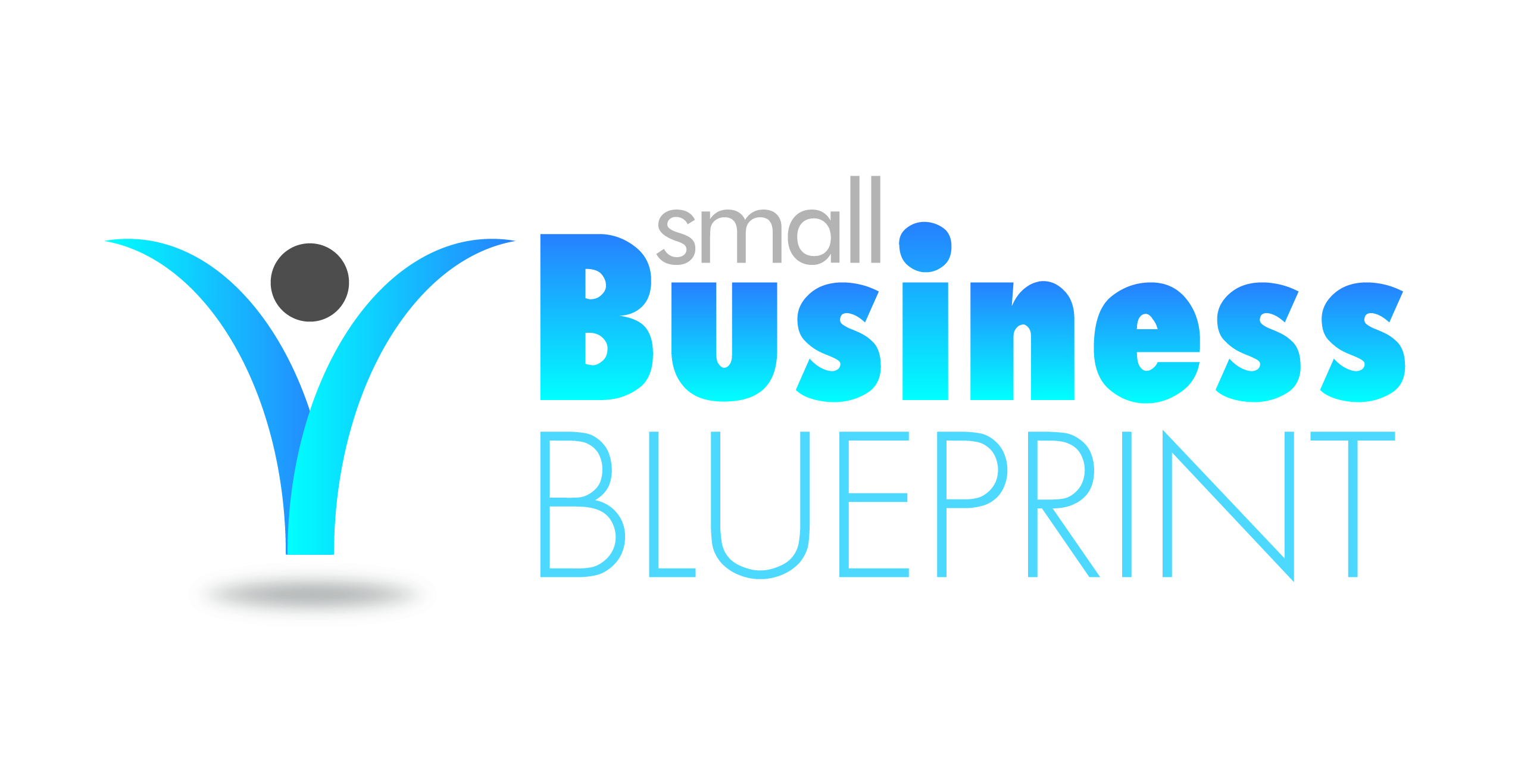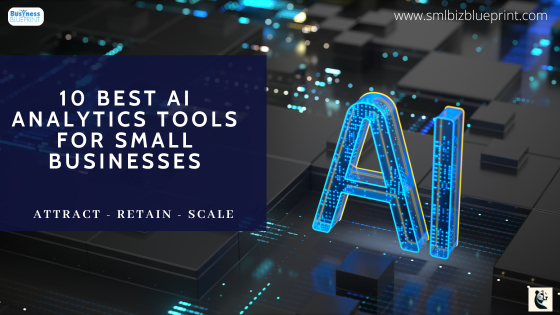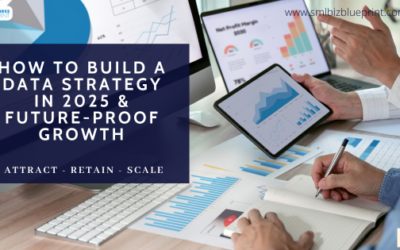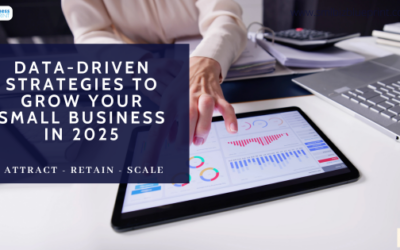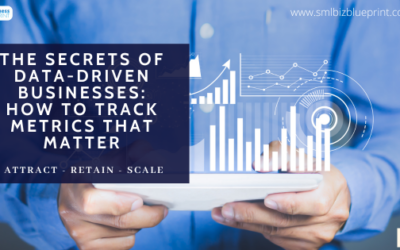Data-driven decision-making has become essential for staying competitive.
AI-powered analytics tools are revolutionising how small businesses understand and use their data, making it easier than ever to uncover actionable insights.
These tools leverage artificial intelligence to automate data analysis, identify patterns, and deliver real-time recommendations without requiring advanced technical expertise.
From tracking customer behaviour and optimising marketing campaigns to forecasting sales and streamlining operations, AI analytics tools empower businesses to make smarter, faster decisions.
In this post, we’ll explore 10 of the best AI analytics tools for small businesses, highlighting their features, use cases, and how they can help transform raw data into valuable insights.
By the end, you’ll clearly understand which tools align with your business needs and how to choose the right one to achieve your goals.
Whether you’re just starting with data analytics or looking to upgrade your current capabilities, this guide will open your mind to the possibilities and practical benefits of using AI-powered tools.
Let’s dive in.

Why AI Analytics Tools Are Crucial for Small Businesses
Small businesses often face unique challenges when it comes to data analytics. Limited resources, tight budgets, and a lack of technical expertise can make competing with larger enterprises with access to advanced tools and data teams difficult.
However, AI-powered analytics tools are levelling the playing field by making data insights accessible, actionable, and affordable for businesses of all sizes.
Key Benefits of AI Analytics Tools for Small Businesses
Automation of Complex Data Tasks
AI tools simplify and automate time-consuming tasks like data cleaning, processing, and reporting. For example, tools like BlazeSQL can convert natural language queries into actionable SQL commands, eliminating the need for technical skills.
Actionable Insights in Real-Time
Instead of waiting weeks for reports, businesses can access real-time insights. AI-powered platforms like Google Analytics 4 and Microsoft Power BI enable decision-makers to monitor trends as they happen, whether it’s website traffic or sales performance.
Improved Decision-Making
AI identifies patterns and trends that might go unnoticed with manual analysis. For instance, Tableau and Qlik use AI to visualise data and uncover hidden opportunities, helping businesses respond to market changes quickly.
Cost-Effectiveness
Many AI tools are designed to be scalable, offering affordable options for small businesses. Platforms like Akkio provide low-code solutions for predictive analytics, allowing businesses to harness advanced features without breaking the bank.
Customer-Centric Strategies
Understanding customer behaviour is critical for growth. Tools like AnswerRocket and Spotfire use AI to analyse customer data, helping businesses refine their marketing efforts and improve customer satisfaction.
The Bottom Line
AI analytics tools are no longer just a luxury for large corporations. They are now accessible and indispensable for small businesses looking to thrive in a data-driven world. By adopting these tools, businesses can automate processes, make data-informed decisions, and stay competitive.
In the next section, we’ll explore the top AI-powered analytics tools you should consider for your business, highlighting their features, pros, and ideal use cases.
Top AI-Powered Analytics Tools for Small Businesses
Google Analytics 4 (GA4)
Overview
Google Analytics 4 (GA4) is a powerful and essential tool for small businesses, providing a comprehensive view of user behaviour across websites and apps.
It is a starting point for business owners to understand their digital performance and how customers interact with their assets.
Key Features:
Cross-Platform Tracking: GA4 tracks user activity across websites and apps, offering a unified view of the customer journey.
Event-Based Data Model: Moves beyond traditional page views to focus on actions like clicks, downloads, and purchases.
AI-Powered Insights: Provides predictive metrics, such as purchase and churn probabilities, to help anticipate customer behaviour.
Integration with Google Ads: Optimizes ad campaigns by linking analytics data directly to advertising performance.
Why It’s an Ideal Starting Point:
Comprehensive Overview: GA4 equips business owners with a foundational understanding of user behaviour, offering insights into what’s working and what needs improvement.
Actionable Data: By identifying which pages drive engagement and conversions, businesses can optimise their content, design, and marketing strategies.
Cost-Effectiveness: It’s free for most users, making it accessible for businesses with tight budgets.
Ease of Implementation: While advanced features may require time to master, GA4 is relatively easy to set up and use for basic insights.
Pros:
Free and accessible to all businesses.
Provides real-time data and predictive insights.
Seamlessly integrates with the Google ecosystem (Ads, Search Console, etc.).
Cons:
Steeper learning curve compared to Universal Analytics.
Custom event setup may require technical expertise for full utilisation.
Ideal Use Cases:
E-commerce stores tracking customer conversion rates and product performance.
Service-based businesses analysing website traffic to improve customer engagement.
Startups optimising marketing campaigns with actionable insights from customer interactions.
Tableau
Overview
Tableau is a leading data visualisation tool that helps businesses create interactive dashboards and uncover actionable insights.
Key Features
Tableau GPT for conversational data queries.
Advanced visualisations with customisable dashboards.
Integration with diverse data sources like Excel, SQL, and cloud platforms.
Pros
User-friendly for visual data analysis.
Extensive library of visualisation options.
Cons
High cost for small teams.
Requires some technical expertise for advanced use.
Ideal Use Cases
Retail businesses analysing sales and inventory trends.
Nonprofits tracking donor engagement metrics.
Microsoft Power BI
Overview
Power BI is a business intelligence tool that integrates seamlessly with the Microsoft ecosystem, offering accessible reporting and analytics capabilities.
Key Features
AI-powered data modelling and transformation.
Real-time dashboard creation.
Integration with Azure Cognitive Services for predictive insights.
Pros
Affordable pricing for small businesses.
Strong integration with Microsoft Office tools.
Cons
Limited customisation compared to Tableau.
Can feel restrictive for complex analysis.
Ideal Use Cases
Small businesses tracking operational KPIs.
Service providers analysing customer satisfaction data.
Qlik
Overview
Qlik provides associative analytics, empowering users to explore data intuitively and uncover relationships that traditional tools might miss.
Key Features
AI-driven visualisations and insights.
Associative data model for intuitive exploration.
Customisable dashboards with advanced analytics.
Pros
Unique associative engine for uncovering hidden patterns.
Scalable for businesses of various sizes.
Cons
Higher cost compared to similar tools.
Steep learning curve for non-technical users.
Ideal Use Cases
Healthcare organisations managing patient data for better resource allocation.
Logistics companies analysing supply chain inefficiencies.
Transform your business with insights that matter.
Subscribe to Pulse for exclusive strategies designed to drive your success.
Join Pulse Now
BlazeSQL
Overview
BlazeSQL enables businesses to run SQL queries using natural language, making data analysis accessible to non-technical teams.
Key Features
Natural language processing (NLP) for query generation.
Automated reporting and visualisation.
Integration with multiple data sources.
Pros
Easy to use, no SQL expertise required.
Affordable and efficient for smaller teams.
Cons
Limited capabilities for advanced analytics.
Relies heavily on predefined datasets.
Ideal Use Cases
Marketing teams analysing campaign performance.
Startups exploring customer demographics without technical resources.
Julius AI
Overview
Julius AI combines intuitive interfaces with powerful predictive analytics, making it a versatile tool for data-driven decision-making.
Key Features
AI chatbot for natural language queries.
Statistical and predictive modelling tools.
Automated pattern detection and forecasting.
Pros
User-friendly for non-technical users.
Adaptable for various industries.
Cons
Limited customisation options for power users.
Can be costly for advanced functionality.
Ideal Use Cases
E-commerce businesses predicting customer churn.
Small consultancies analysing market trends.
Akkio
Overview
Akkio is a no-code platform for building machine learning models, enabling businesses to easily perform predictive analytics.
Key Features
Drag-and-drop interface for quick model creation.
Automated reporting and insights.
Forecasting tools for demand and trends.
Pros
Affordable and beginner-friendly.
Fast implementation for small teams.
Cons
Limited features for complex datasets.
Best suited for smaller-scale projects.
Ideal Use Cases
Restaurants predicting peak hours for staffing.
Retailers forecasting seasonal product demand.
Spotfire
Overview
Spotfire provides advanced data visualisation capabilities with AI-driven recommendations to simplify analysis.
Key Features
Natural language querying for fast insights.
AI-powered chart and report generation.
Customisable, interactive dashboards.
Pros
Exceptional visualisation tools.
Strong for large, complex datasets.
Cons
Higher pricing compared to competitors.
May require training for optimal use.
Ideal Use Cases
Manufacturers analysing production inefficiencies.
Energy companies tracking resource usage.
AnswerRocket
Overview
AnswerRocket uses natural language processing to deliver rapid insights, making it ideal for non-technical users.
Key Features
AI-powered search for data analysis.
Automated visualisations and reports.
Natural language questions for intuitive queries.
Pros
Simple and accessible for beginners.
Saves time with instant insights.
Cons
Limited flexibility for advanced users.
Not suitable for very large datasets.
Ideal Use Cases
Small legal firms analysing case data for trends.
Startups tracking financial performance metrics.
IBM Cognos Analytics
Overview
IBM Cognos Analytics combines AI-powered insights with robust business intelligence capabilities, offering self-service analytics for teams.
Key Features
AI-driven recommendations for reports and dashboards.
Natural language querying for ease of use.
Scalable for businesses of all sizes.
Pros
Enterprise-grade analytics with a user-friendly interface.
Real-time collaboration on reports.
Cons
Higher cost for small businesses.
Overkill for simple analytics needs.
Ideal Use Cases
Accounting firms automating compliance and financial forecasting.
Mid-sized businesses creating detailed, collaborative dashboards.

Choosing the Right AI Analytics Tool for Your Business Needs
Selecting the right AI analytics tool requires a clear understanding of your business’s goals, resources, and specific needs.
Here are the key factors to consider:
Define Your Goals
Determine the primary purpose of using an analytics tool. Are you looking to improve decision-making, forecast trends, or enhance customer engagement?
For instance, a retail business may benefit from tools like Tableau or Qlik for sales trend analysis, while a service provider might prioritise Power BI for tracking operational performance.
Assess Your Technical Expertise
If your team lacks technical expertise, opt for tools with user-friendly interfaces like BlazeSQL, Akkio, or AnswerRocket. These platforms offer natural language processing and drag-and-drop features, making them accessible to non-technical users.
More robust options like IBM Cognos Analytics or Spotfire may provide the depth needed for teams with advanced capabilities.
Consider Your Budget
Many tools offer tiered pricing, making it easier for small businesses to start with basic features. For example, Google Analytics 4 is free for most businesses, while tools like Tableau and IBM Cognos Analytics require a larger investment.
Match your budget to the features you need to avoid overpaying for unused capabilities.
Evaluate Scalability
Choose a tool that can grow with your business. If you plan to expand operations, prioritise platforms like Qlik or Microsoft Power BI, which can handle larger datasets and increased complexity over time.
Prioritise Integrations
Ensure the tool integrates seamlessly with your existing systems, such as CRM software, marketing platforms, or cloud services. Tools like Google Analytics 4 and Power BI excel in integration capabilities, making them ideal for connected workflows.
Trial and Experiment
Most platforms offer free trials or demos. Before committing, use this opportunity to explore their interfaces, features, and usability.
For example, test how tools like Akkio handle predictive modelling or how Tableau visualises your key metrics.
By carefully evaluating these factors, you can choose an AI analytics tool that aligns with your goals, resources, and growth trajectory, ensuring long-term success for your business.
Conclusion
AI-powered analytics tools have transformed the way small businesses approach data.
From user-friendly platforms like Google Analytics 4 to innovative solutions like BlazeSQL and Akkio, these tools empower businesses to unlock valuable insights, streamline operations, and easily make data-driven decisions.
Whether you want to enhance customer engagement, forecast sales, or optimise operations, the right tool can make all the difference.
Start by identifying your business’s unique needs, considering factors such as budget, technical expertise, and scalability.
With the right AI-powered analytics tool, even the smallest business can compete in today’s data-driven marketplace.
Stay ahead of the curve!
Subscribe to our newsletter and never miss the latest in business growth and marketing strategies.
Join Our Community
FAQs
Q1: What is an AI-powered analytics tool?
A1: AI-powered analytics tools leverage artificial intelligence to analyse data, identify patterns, and generate actionable insights. These tools automate complex tasks, making it easier for businesses to make data-driven decisions.
Q2: How can small businesses benefit from AI analytics tools?
A2: Small businesses can use AI analytics tools to streamline operations, improve decision-making, and enhance customer engagement. These tools are often scalable and affordable, making them accessible even to smaller teams.
Q3: Are AI analytics tools difficult to use?
A3: Many AI analytics tools, such as BlazeSQL and Akkio, are designed with non-technical users in mind. They offer intuitive interfaces, natural language processing, and drag-and-drop functionality to simplify the analytics process.
Q4: What factors should I consider when choosing an AI analytics tool?
A4: Key factors to consider include your business’s specific needs, budget, technical expertise, and desired integrations. It’s also important to evaluate whether the tool supports your long-term scalability goals.
Q5: Which AI analytics tools are best for beginners?
A5: Tools like Google Analytics 4, Akkio, and BlazeSQL are beginner-friendly options that offer intuitive interfaces and helpful guidance for first-time users.
Q6: Are these tools suitable for all industries?
A6: Yes, the listed tools are versatile and cater to various industries, including retail, healthcare, e-commerce, manufacturing, and professional services. Each tool’s ideal use cases highlight where it performs best.
Q7: How much do AI analytics tools cost?
A7: Pricing varies by tool and features. For example, Google Analytics 4 is free for most businesses, while platforms like Tableau and IBM Cognos may require a significant investment. Many tools offer tiered pricing based on business size and needs.
Other Articles
The Psychology of Buyer Behaviour: Master Marketing in 2025
How Data-Driven Marketing Drives Small Business Success
The Best AI Solutions to Simplify Work for Small Business Owners
